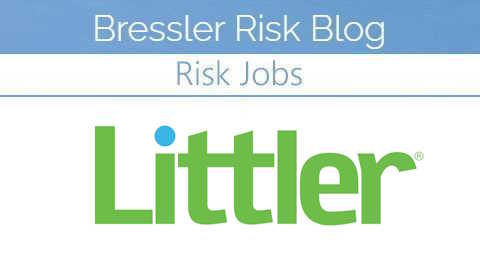Conflicts Updates — Another Joint Defense Conflicts & Confidentiality Story, Non-DQ for “Living Expenses” Ethics Issue
Posted on
- “A federal judge declined to disqualify an attorney accused of paying for his client’s living expenses, an alleged violation that will be referred to the Disciplinary Committee for further evaluation.”
- “U.S. District Judge Wendy Beetlestone of the Eastern District of Pennsylvania held that the issue of counsel paying for their client’s living expenses didn’t warrant disqualifying the attorney, concluding a potential ethical violation didn’t require disqualification.”
- “In a Jan. 10 opinion, the court denied defendant Tasty Baking Co.’s motion to disqualify plaintiff Jose Ayala Sr.’s counsel, who is alleged to have been paying for the plaintiff’s living expenses, referring the matter to the disciplinary committee to investigate the potential ethics violation.”
- “…[Pennsylvania] Rule 1.8(e) provides that, “A lawyer shall not provide financial assistance to a client in connection with pending or contemplated litigation, except that: 1. a lawyer may advance court costs and expenses of litigation, the repayment of which may be contingent on the outcome of the matter; and, 2. a lawyer representing an indigent client may pay court costs and expenses of litigation on behalf of the client,” the opinion said.”
- “‘The ethical considerations underlying rules on attorneys’ paying their clients’ living expenses aim to prevent financial entanglements that incentivize frivolous litigation (or at least that may monetarily incentivize litigants to make litigation decisions they might not otherwise make),’ Beetlestone noted. However, she ruled that given the factual record, disqualification wasn’t currently warranted.”
- “The court cited its 1999 ruling in Shade v. Great Lakes Dredge & Dock Co., which addressed Pennsylvania Rule 1.8(e) in the context of a client’s living expenses, noting the decision’s key principle that disqualification wasn’t warranted, ‘even if an ethical rule was violated—when it ‘is not necessary to effectuate the purposes of the rule or protect the integrity of the legal process’ in a particular case.'”
“Avoiding Conflicts With a Joint Defense Member Who Flips” —
- “A decision last week from the U.S. District Court for the Southern District of Florida, United States v. Vuteff, illustrates a benefit of utilizing a written joint defense agreement properly tailored to limit future conflicts, rather than relying on the oral agreements that are common among many practitioners.”
- “The court in Vuteff disqualified a lawyer whose former client was in an oral joint defense agreement with another individual who later ‘flipped’ to cooperate with the government. It held that the agreement imposed a duty of confidentiality on the lawyer, which would be violated by the lawyer’s use of information obtained through the joint defense to attack the cooperator’s credibility.”
- “This unfortunate scenario likely was avoidable. Applicable ethical guidance and case law indicate that such a disqualifying conflict can be obviated by a written joint defense agreement that expressly permits such use.”
- “United States v. Vuteff, 22 Cr. 20306, Dkt. No. 119 (S.D. Fla. Dec. 6, 2023), affirming 2023 WL 4202644 (S.D. Fla. June 27, 2023), a recent case out of the Southern District of Florida, serves as a cautionary reminder that, in some circumstances, courts may deem obligations to a non-client arising from a prior JDA to pose a conflict of interest for future representations.”
- “The case concerns an alleged bribery and money laundering conspiracy whereby individuals allegedly paid Venezuelan officials in return for the diversion of hundreds of millions of dollars from the Venezuelan state-owned oil company Petroleos de Venezuela S.A. (PDVSA). Several individuals employed by European financial institutions then allegedly helped launder the PDVSA funds using the international banking system.”
- “In the original criminal complaint filed in July 2018, two brothers were anonymously identified as part of the conspiracy but not named as defendants: Adolfo Ledo Nass and Alvaro Ledo Nass. After being identified in the complaint, each brother retained separate defense counsel, and Adolfo retained an experienced Miami-based criminal defense lawyer (hereinafter, Lawyer-1). Adolfo and Alvaro decided to work together to pursue a common defense strategy; accordingly, the brothers and their counsel entered into an oral JDA in August 2018.”
- “Over the next six months, the brothers and their counsel—including Lawyer-1—had several in-person meetings and conference calls where both brothers’ involvement in the alleged conspiracy was discussed. In early 2019, Adolfo discharged Lawyer-1 and retained new defense counsel.”
- “Over three years later, Lawyer-1 became involved in the PDVSA case once again—only this time representing a different alleged conspirator. On July 12, 2022, Luis Fernando Vuteff was indicted in the Southern District of Florida for conspiring to launder money as part of the PDVSA bribery scheme, and he retained Lawyer-1 as his defense counsel.”
- “As it happened, at some point after Adolfo discharged Lawyer-1, Alvaro agreed to cooperate with the government. As part of his cooperation agreement, Alvaro agreed to testify at any hearings or trials in the several cases relating to the PDVSA conspiracy—including Vuteff’s case.”
- “After it became clear that Alvaro would serve as a government witness against Vuteff, the government moved to disqualify Lawyer-1 and his firm from representing Vuteff.”
- “The government argued that, even though Lawyer-1 had not previously represented Alvaro, Lawyer-1’s previous participation in the JDA between Adolfo and Alvaro—and the fact Alvaro shared confidential information with Lawyer-1 as part of that JDA—created a conflict of interest precluding Lawyer-1 from representing Vuteff in a case involving the same criminal conspiracy. The government further emphasized that Alvaro refused to waive any conflicts of interest posed by the previous JDA.”
- “The court agreed with Lawyer-1 that he did not ‘owe an ethical obligation’ to Alvaro because he never represented Alvaro directly at the time he represented Adolfo. Vuteff, 2023 WL 4202644, at *6. Nonetheless, referencing ABA Formal Opinion 95-395, the court concluded that Lawyer-1 did owe Alvaro a fiduciary duty of confidentiality.”
- “Thus, because it was undisputed that Lawyer-1 learned confidential information from Alvaro as part of the JDA, and because Lawyer-1 sought to represent a co-defendant in the same case who was undoubtedly now adverse to the interests of Alvaro, this created a conflict of interest that precluded Lawyer-1 from representing Vuteff.”
- “Practitioners who commonly rely on oral JDAs may point to the time and energy required to negotiate the precise terms of a written JDA, and counsel’s ability to limit information sharing in situations where they perceive risk that a joint defense member may desert the group. The significant likely benefit of such express waiver language, however, provides a forceful counterargument in favor of a written JDA.”









